Sadness and the Old Web
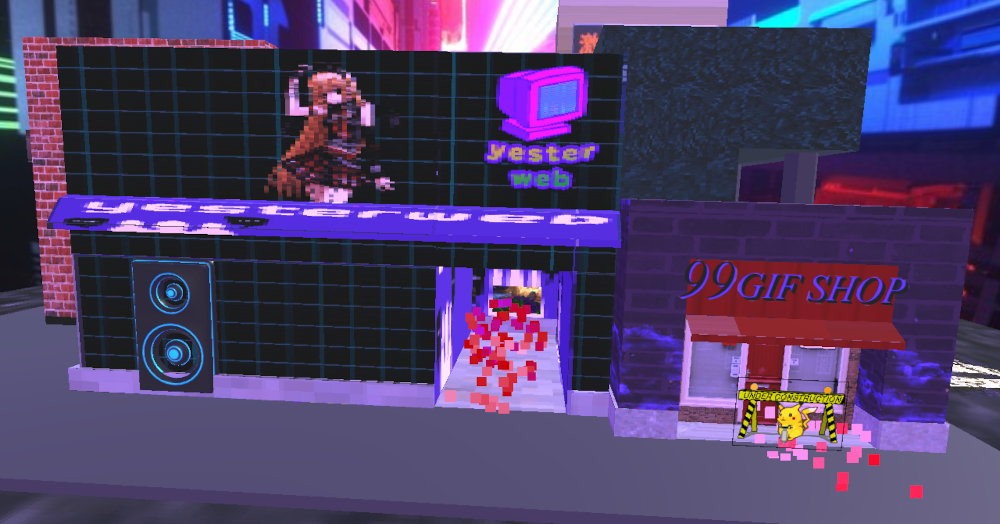
Sadness is a webmistress and founder of the online Yesterweb community.
Chances are you’re familiar with her work if you’ve got a soft spot for the old web, as she’s inspired thousands of people to build simple but soulful websites from scratch using HTML & CSS.
The Yesterweb’s goal goes beyond just aesthetics and web design, tough. It’s become somewhat of a movement; something to counter the increasing corporatization of the internet. If you’re tired of online surveillance and the time sink apps that fight for every second of human attention, check out the interview below and see if you want to get involved.
Hi Sadness, it’s great to have you here with us today! We’re all eager to learn more about you and your work, so tell us, what’s your story?
Thank you so much! I’m excited to be here!
I grew up using the internet in the late 90s and early 00s, which holds a special, nostalgic place in my heart.
A couple of years ago, I discovered Neocities, a site that is essentially a modern day Geocities. Back in the day, Geocities allowed anyone with access to a computer the freedom to create their own website. It really allowed the “personal web” - websites about regular people’s lives and interests - to bloom.
Neocities offers regular people a place to be in considerably more control over their online existence.
I created my website to share how easy it is to do this, and to encourage others to try it out. I also really love having my own space that I can use to express myself.
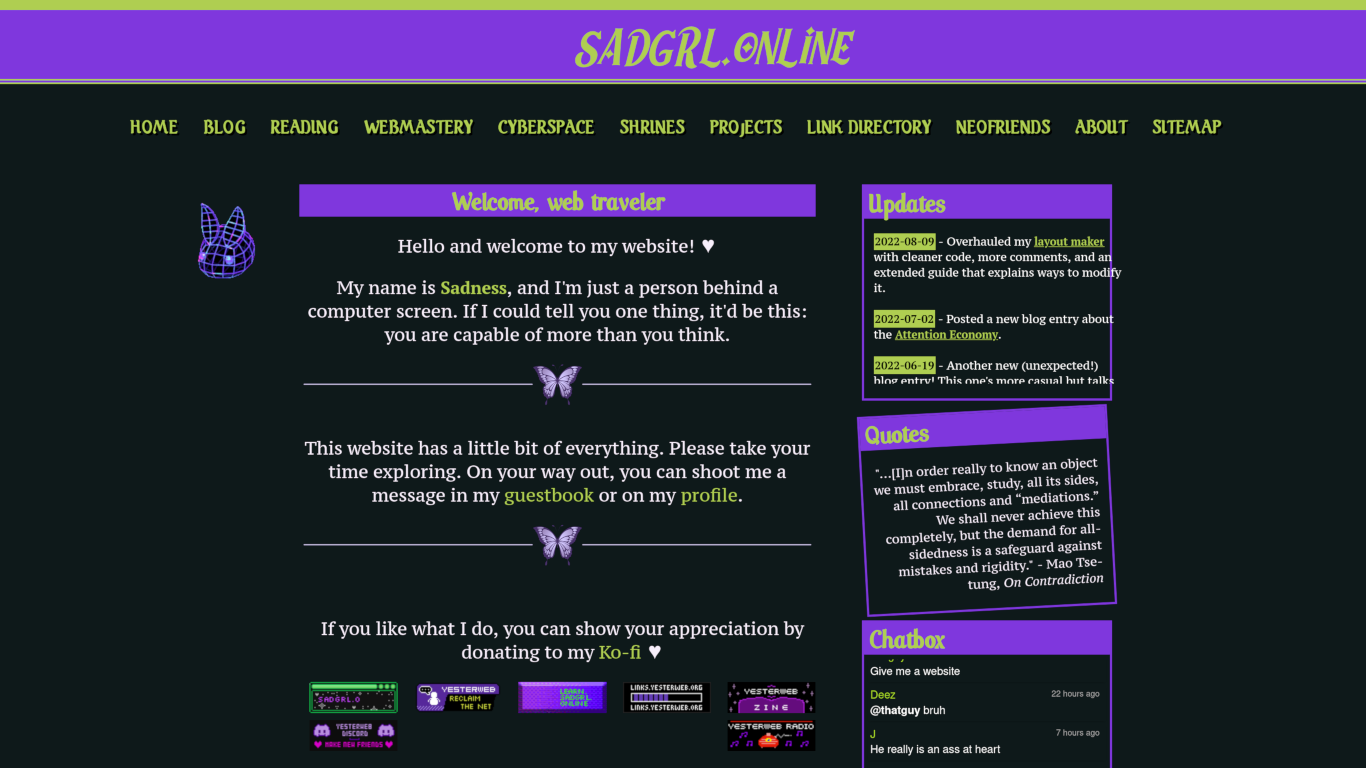
The Yesterweb community started out as more of an “open call” to see how many people were interested in chatting about websites and website-building. It turned out that a lot of people were interested, and things really started to take root from there.
Do you have any memories of the old internet you’d like to share? Some of us never got to experience it.
In the days of Myspace, my favorite part of being online was seeing and admiring other people’s intricate and beautiful web design skills. Myspace had a “browse” feature where you could browse users by age, sexuality, and zodiac signs. It would show users according to those online now, and who have recently logged in. I was all about finding new friends this way.
I also loved Xanga and how it was trendy for a while for people to keep super casual blogs about their lives and what happened to them every day - like a public diary. I loved reading these because it was like a glimpse into someone else’s life. It felt more natural and organic than a Twitter feed. Xanga also had something called “blogrings” which were just groups that anyone could create with any name, and then anyone could join. They were things like “poetry is life” and then you could search people in that group to find potential new blogs and content.
The most distinct difference I notice between social platforms then and now is how difficult it is to organically discover anything. The closest thing we have in most cases is a way to search for tags - but it’s so much more impersonal, unconcerned with bringing people together. Everything else is a “recommendation”.
What’s your take on online friendships? Do you believe they’re equal to the ones we keep offline?
Online friendships have always been extremely important to me. I’ve always held them to just as high esteem as real-life friendships.
The majority of friends in my life have been people I found online. In my real, physical life experience, I haven’t had the opportunity to meet even half as many people, and have felt comfortable around even less. Where do you even meet people in real life? I grew up in a very car-reliant suburb and even after getting a car I couldn’t find any local groups that weren’t targeted at people age 60+ or new mothers. I’m not sure what other kids in my neighborhood were doing, but I suspect they were online.
That being said, online friendships can only do so much to alleviate a situation of real-life social alienation. I always strive to turn the best ones into real-life friendships, but this is more difficult than it sounds and often requires resources that we don’t have.
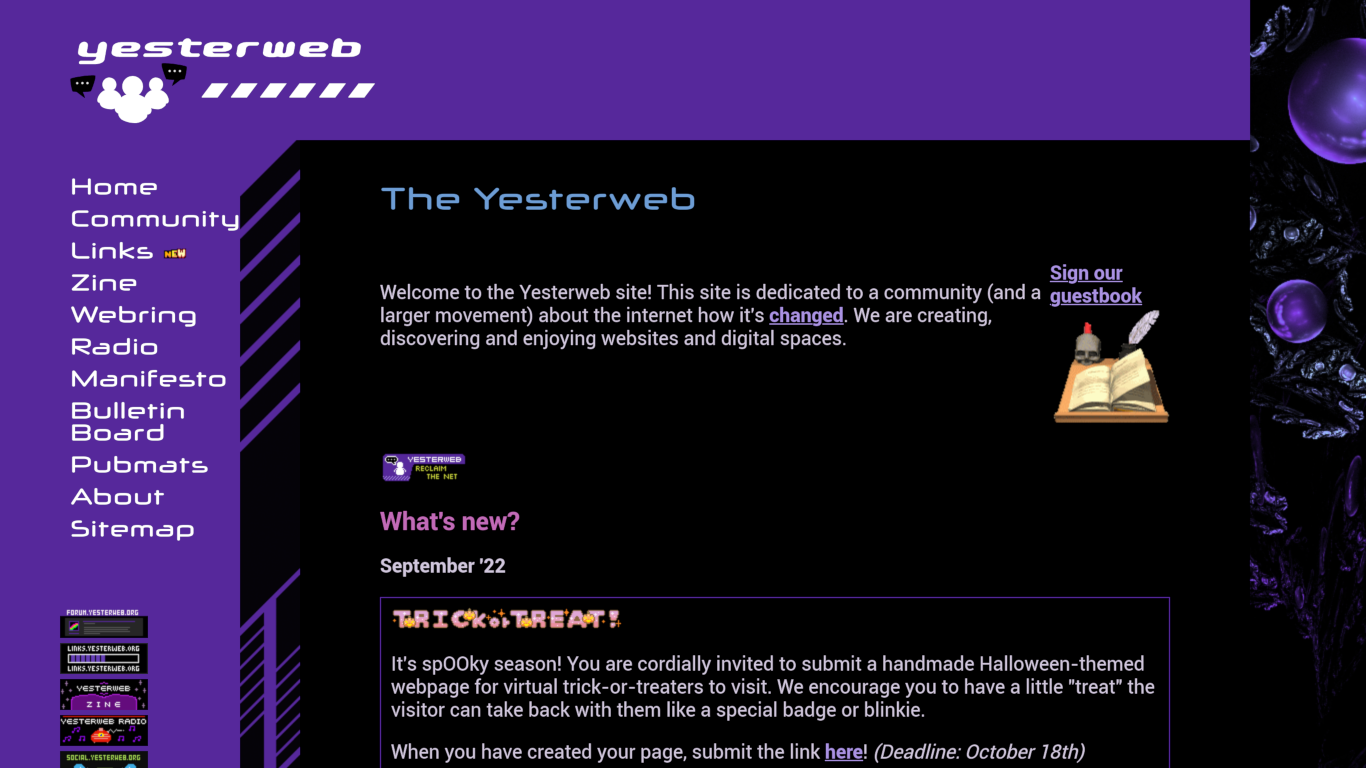
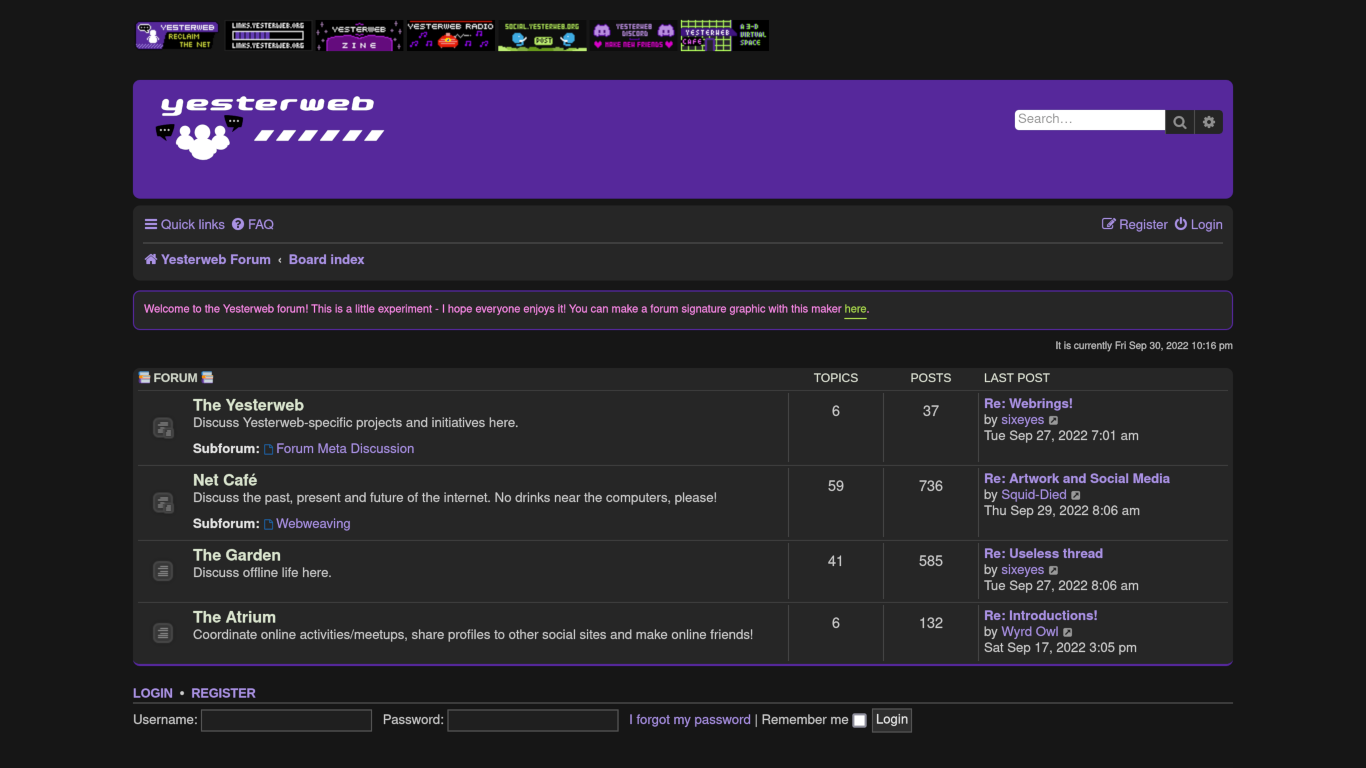
The Yesterweb and its community inspired thousands of people to connect and make personal websites together. Did you expect the project to be so successful when you first made it? How do you feel now seeing it grow so fast?
I still find it so completely amazing and surreal that the project has brought so many people together.
It was also incredibly cathartic. Before the Yesterweb, it felt like no one really talked about the internet itself and how much social media sucked. Everyone just kind of seemed to accept things as they were. I think that public perception is changing a little bit now though.
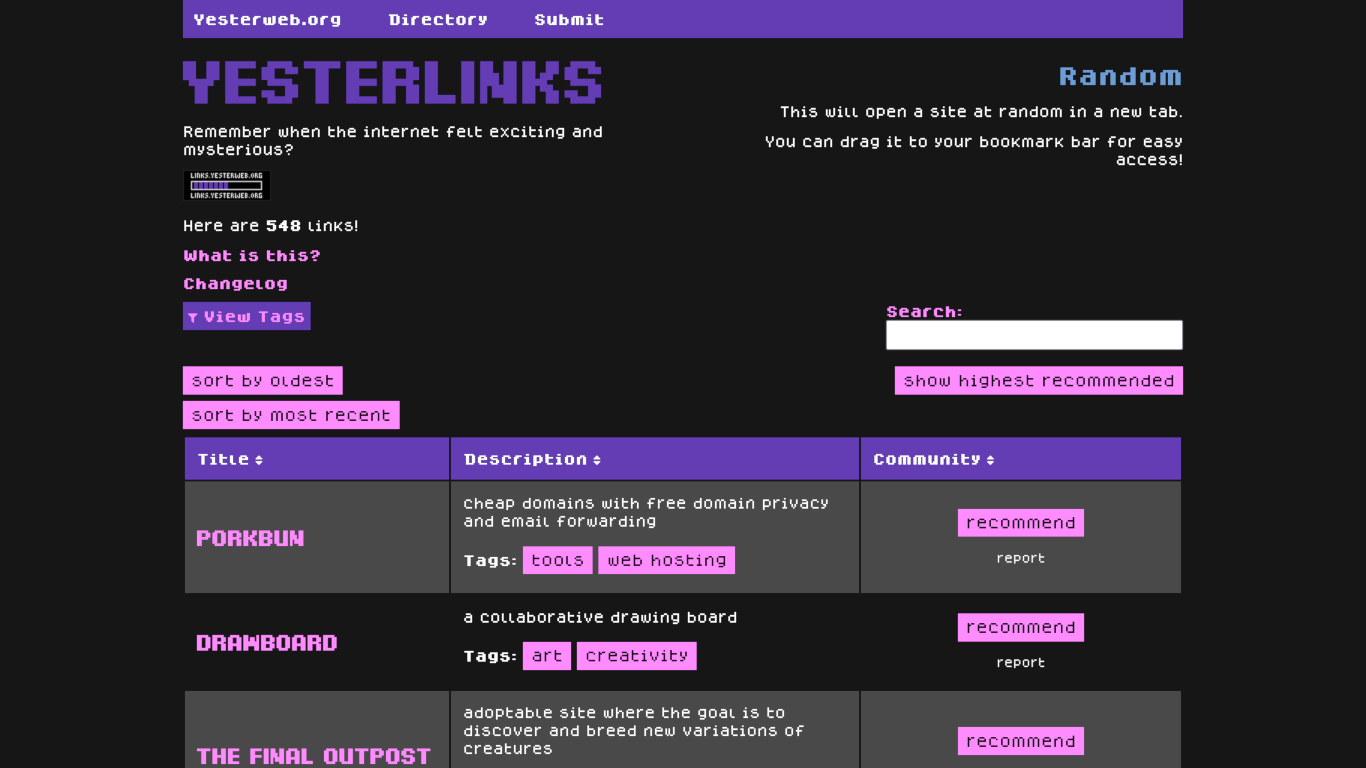
Another thing the project did was highlight a key problem with today’s internet; how ‘users’ become the product, manipulated by algorithms that want their attention at all costs. Do you believe this hollow version of the web is something regular people will eventually reject, or will it always be a niche community?
I’ve seen more people acknowledge this problem with the internet in the last year than ever before. There is lots of open criticism going on right now regarding the Tech industry (e.g., Facebook/Meta, Amazon and Google).
This gives me hope. I think right now the path ahead isn’t very clear, and maybe that’s because there’s more we’re not aware of, or can’t articulate properly yet. As more people become aware and join the discussion, we’ll be closer to figuring things out.
I always thought anonymity was a key aspect of online life, so I wanted to ask how you feel about the global push to link our real-life identities to online activity.
I always avoid linking my online identity to my real one.
Anonymity is especially important when your identity divulges from the ‘conventional standard’.
For example, simply identifying myself as a woman on the internet (despite keeping my personal info private) makes me a target for certain kinds of bad actors, and it only gets worse from there when taking into account other factors like nationality, race, gender identity or sexuality.
Those who are proposing to link real life and online identities aren’t taking into account the real-life harm that comes from strangers on the internet knowing your name.
If someone agrees with all of this and feels like the Yesterweb community might be for them, how do you recommend they start?
The best thing to do would be to check out the Neocities Browse page for a taste of everything that a website can be. Try the different filters; you can sort by newest or recently updated - there is so, so much inspiration and creativity to be found in the pages of those sites.
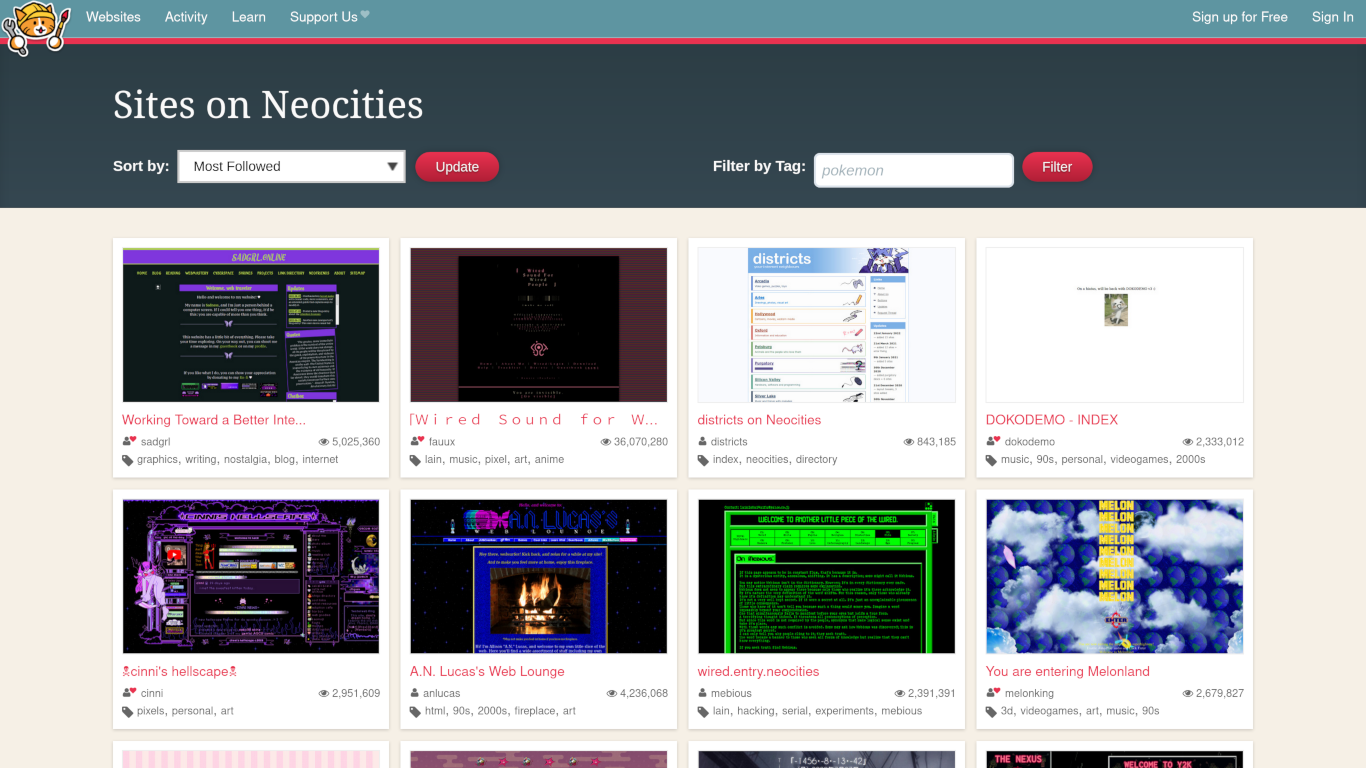
I actually have a beginner’s guide to Neocities. It’s the type of guide for someone who wants to just jump in and start making a website. There’s very little pre-learning required, but that’s because I strongly feel it’s more natural to learn things along the way - as you build. My website has a lot of such resources on my Webmastery page, but there are also lots of tutorials around Neocities written by other people which are very worth it and might better suit your learning style.
Building websites can be intimidating at first. Things like Squarespace or Wix made it easy but impersonal, while coding sites with HTML & CSS is scary for beginners. Do you have any tips for getting over that first hurdle?
The biggest tip I can share is to try out learning HTML and CSS in a sandbox environment like CodePen to start. I can’t emphasize how helpful this has been for me because the moment you write some “code”, you can see the changes in a real-time preview.
The problem with platforms like Squarespace and Wix is that they’re targeted toward businesses - not your creative webmasters.
If you’re someone who wants to flex your creativity and have something that is truly yours, HTML and CSS are where it’s at.
Don’t be afraid to experiment, and most importantly, practice!
Oh, and if you don’t feel like learning to code, there are websites where you can make a site visually, without a drop of code. HOTGLUE, mmm.page and Straw.Page (the last one even works on phones)!
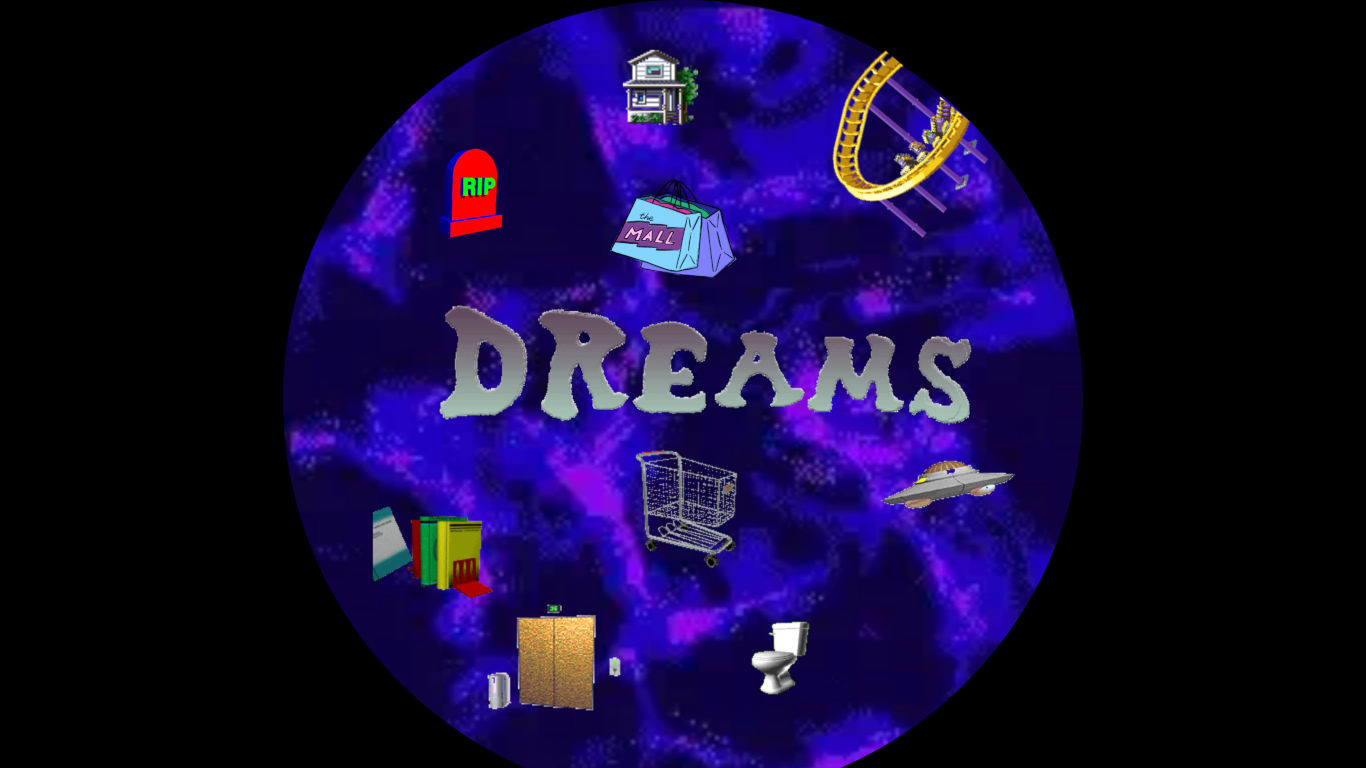
What do you plan to do next?
I want to continue building awareness about the ways in which the current web exploits us. In the future, I’d like to focus more on helping people improve communication techniques online, which is something we can all practice whether or not we opt out of social media.
I have so many ideas for the future and so many new projects I want to work on. It’s been really important for me to pace myself, because I have a full-time job and other real life responsibilities that restrict the amount of time and energy I can dedicate. I’ve been working toward finding a better balance between real-life and the internet. Maybe once I figure it out, I can help share that on my website, too.
If you enjoy Sadness’ work, consider visiting her website or joining the Yesterweb.
Please donate to perephoneia.art if you liked this interview. Your support helps cover the hosting costs for the website, keeping it free and online for others to discover.
